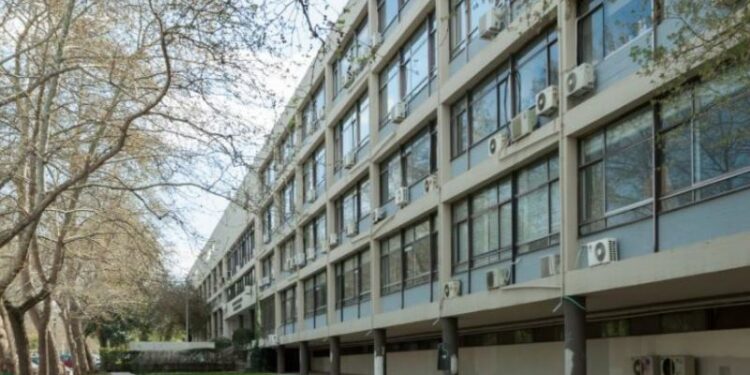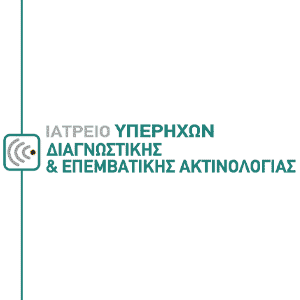Τρεις αλλαγές επιφέρει το νομοσχέδιο των υπουργείων Παιδείας και Προστασίας του Πολίτη, όσον αφορά στην ενίσχυση της ασφάλειας στους χώρους των Πανεπιστημίων αλλά και σχετικά με την εισαγωγή των υποψηφίων στην Τριτοβάθμια Εκπαίδευση.
Πρώτη, η καθιέρωση ελάχιστης βάσης εισαγωγής στα πανεπιστημιακά τμήματα, όχι με απόλυτο αριθμό (πχ. 10), αλλά ορισμένη από το κάθε τμήμα. Συγκεκριμένα, η βάση εισαγωγής για κάθε τμήμα θα προκύπτει, σύμφωνα με το σχέδιο νόμου, από ένα ποσοστό (80%-120%) του μέσου όρου των μέσων επιδόσεων των υποψηφίων κάθε επιστημονικού πεδίου στα μαθήματα που εξετάστηκαν. Τα παραπάνω θα ισχύσουν από τις φετινές Πανελλαδικές Εξετάσεις, του 2021. Από του χρόνου (Πανελλαδικές Εξετάσεις 2022), το υπουργείο προγραμματίζει, επιπλέον, να δώσει στα τμήματα την δυνατότητα να επιλέγουν συντελεστές βαρύτητας για τα εξεταζόμενα μαθήματα.
Η δεύτερη αλλαγή αφορά στον περιορισμό του αριθμού των επιλογών του μηχανογραφικού και συμπλήρωσή του σε δύο φάσεις. Η αλλαγή αυτή, που επίσης προγραμματίζεται -εν τέλει- για τις επόμενες Πανελλαδικές (2022) εισάγει δύο φάσεις συμπλήρωσης μηχανογραφικού. Στην Α φάση, οι υποψήφιοι θα μπορούν να συμπληρώσουν συγκεκριμένο αριθμό τμημάτων στο μηχανογραφικό. Ο αριθμός θα προκύπτει από το 10% του συνόλου των τμημάτων για τα ΓΕΛ και το 20% για τα ΕΠΑΛ. Στη Β φάση, θα συμμετέχουν όσοι δεν έχουν εισαχθεί στην πρώτη φάση, χωρίς περιορισμό επιλογών και για τις θέσεις των ΑΕΙ που θα έχουν απομείνει. Παράλληλα, θα υπάρξει μηχανογραφικό για την εισαγωγή στα δημόσια ΙΕΚ, με βάση το απολυτήριο, κάτι που θα ισχύσει από φέτος.
Τρίτον, εισάγεται χρονικό όριο φοίτησης. Για τα 4ετή προγράμματα σπουδών, το όριο θα είναι ν+2. Για τα προγράμματα σπουδών διάρκειας μεγαλύτερης των 4 ετών, θα είναι ν+3. Οι αλλαγές θα ισχύσουν για τους νεοεισερχόμενους φοιτητές, ενώ θα υπάρξει πρόβλεψη και για εξαιρέσεις (λόγοι εργασίας, σοβαρών θεμάτων υγείας, κτλ).
Οι τρεις αλλαγές σε σχέση με το ακαδημαϊκό περιβάλλον
Τρεις αλλαγές επιφέρει το νομοσχέδιο των υπουργείων Παιδείας και Προστασίας του Πολίτη, όσον αφορά στην ενίσχυση της ασφάλειας στους χώρους των πανεπιστημίων. Αυτές αφορούν στην ελεγχόμενη είσοδο στα ΑΕΙ και σύσταση δομών ασφαλείας, στη σύσταση ειδικής Ομάδας Προστασίας Πανεπιστημιακού Ιδρύματος (ΟΠΠΙ) και στην ενίσχυση διατάξεων πειθαρχικού δικαίου. Αναλυτικότερα, το νομοσχέδιο προβλέπει την ελεγχόμενη είσοδο και έξοδο στον χώρο των ΑΕΙ. Όπου αυτό δεν είναι εφικτό, σε πανεπιστήμια που π.χ. συνορεύουν με πάρκα, η ελεγχόμενη είσοδος θα γίνεται στους εσωτερικούς χώρους.
Για την ΟΠΠΙ, προβλέπονται 1.000 οργανικές θέσεις, που θα κατανέμονται και θα ανακατανέμονται στα ΑΕΙ ανάλογα τις ανάγκες τους. Πρόκειται για μία ομάδα με ειδική εκπαίδευση από την ΕΛΑΣ, που θα φέρει ειδική στολή, θα υπάγεται στην ΕΛΑΣ και θα συνεργάζεται με τον πρύτανη και τον αντιπρύτανη του εκάστοτε ΑΕΙ. Η ομάδα θα έχει πλήρη αστυνομικά καθήκοντα, αλλά δεν θα φέρει πυροβόλα όπλα. Ως προς το πειθαρχικό δίκαιο, το νομοσχέδιο των υπουργείων Παιδείας και Προστασίας του Πολίτη περιλαμβάνει διατάξεις για πειθαρχικά παραπτώματα και πειθαρχικές ποινές, ενώ προβλέπεται και η σύσταση Πειθαρχικού Συμβουλίου Φοιτητών. Τα παραπτώματα θα αφορούν από το αδιάβλητο των εξετάσεων, μέχρι και αξιόποινες πράξεις και προβλέπεται ένα πλαίσιο αντίστοιχων ποινών.
«Το νομοσχέδιο εισάγει αλλαγές που στοχεύουν στο να αντιμετωπίσουν χρόνιες παθογένειες του συστήματος και βρίσκονται στον πυρήνα των προεκλογικών δεσμεύσεων της Νέας Δημοκρατίας», ανέφερε η υπουργός Παιδείας και Θρησκευμάτων, Νίκη Κεραμέως κατά τη διάρκεια συνέντευξης Τύπου. Οι υπουργοί Παιδείας, Νίκη Κεραμέως, και Προστασίας του Πολίτη, Μιχάλης Χρυσοχοΐδης παρουσιάζουν αυτή την ώρα το σχέδιο νόμου των δύο υπουργείων, με τίτλο: «Εισαγωγή στην Τριτοβάθμια Εκπαίδευση, Προστασία της Ακαδημαϊκής Ελευθερίας, Αναβάθμιση του Ακαδημαϊκού Περιβάλλοντος και άλλες διατάξεις». Το νομοσχέδιο είναι προγραμματισμένο να τεθεί σε δημόσια ηλεκτρονική διαβούλευση άμεσα. Η υπουργός αναμένεται να πραγματοποιήσει ενημέρωση και για το άνοιγμα των σχολείων.
Πηγή: ΑΠΕ-ΜΠΕ





























